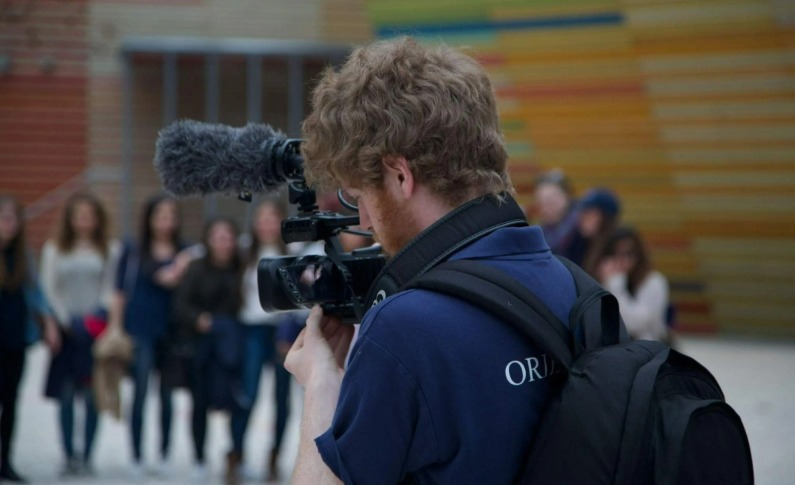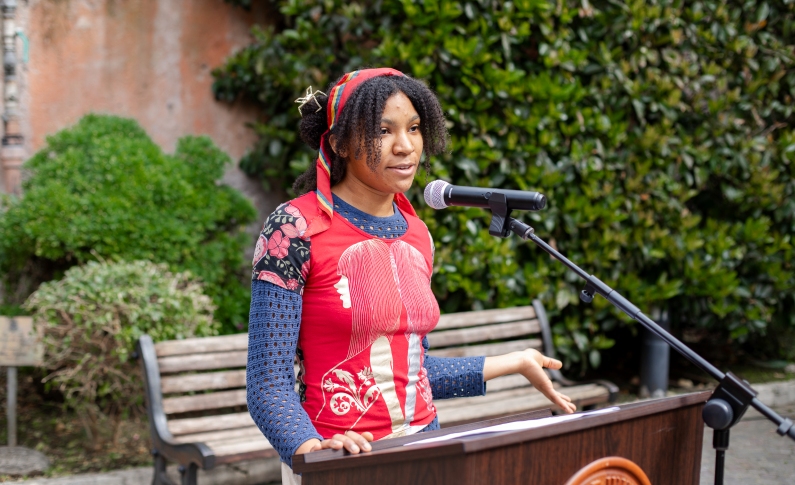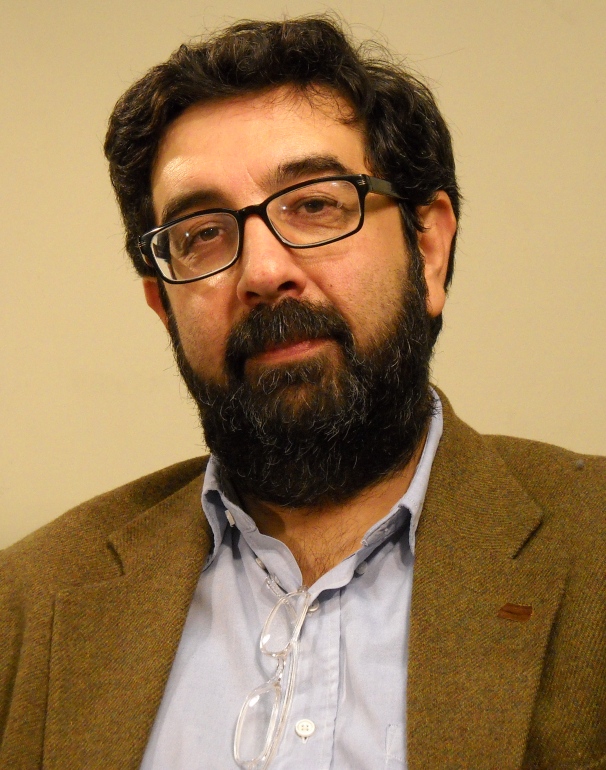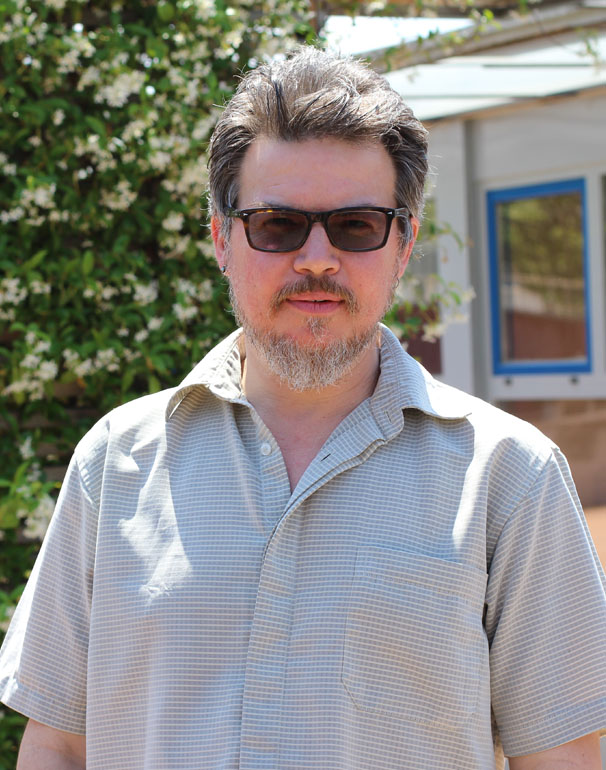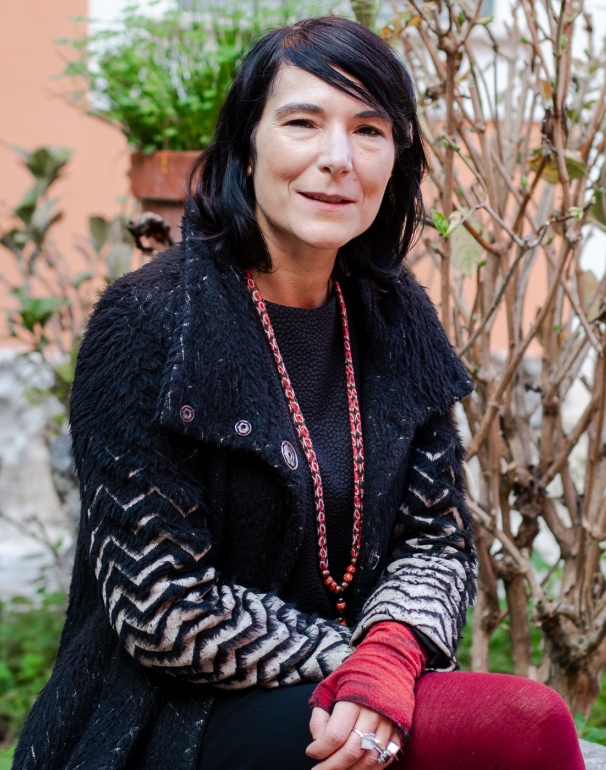Inside the Communications Program
As a JCU student, your coursework will foster your intellectual growth, enhance your ethical reasoning, and provide a solid foundation of knowledge and skills that will empower you to address any challenges in your future career and become a leader in your field.
As a Communications major at JCU, you'll take classes designed to ignite your passion and creativity and help you gain insight into important contemporary issues. You will engage in hands-on research projects such as analytical papers, video essays, and e-portfolios. Under the supervision of your dedicated professors, you'll explore vital topics in communications in a rich learning environment that promotes open dialogue and growth. Your senior capstone project marks a significant milestone in your academic journey.
Plan your COM course sequence while at JCU.
Requirements for the Degree
A. The Proficiency and General Distribution Requirements of the University.
B. Core Curriculum
- COM 101 Public Speaking
- COM 111 Introduction to Visual Communication
- COM 210 Introduction to Cinema
- COM 220 Media, Culture, and Society
- COM 230 Foundations of Digital Video Production
- COM 221 Writing Across the Media
- COM 311 Digital Media Culture
- CMS 300 Level Course
- COM 470 Advanced Communication Theory
- COM 480 Senior Capstone Seminar
The University requires an overall minimum grade point average of 2.00 in all courses taken at the University with no more than two grades lower than C- in core courses required for the major.
C. Major Electives
Seven major electives at the 200 level or higher not in the core in CMS/DMA/DJRN/COM.
Of these:
- Three must be chosen from one of the following clusters/areas of concentration:
- CMS: Communication and Media Studies (this will include all studies and theory courses)
- DMA: Digital Media Arts (this will include all production courses in both digital audiovisual production and digital graphic arts)
DJRN: Digital Journalism (this will include courses related to print and visual media journalism)
- Four must be at the 300-level or higher. You may substitute up to two with ANY courses from the list of Approved Major Electives.
No more than two courses other than those courses coded CMS/DMA/DJRN/COM that are related to the student’s area of concentration and aimed at increasing the breadth of their studies may be used as major electives. These must be chosen from the list of approved courses. Other courses (still within the limited two) related to the major but not included on the list might qualify as major electives depending on the students’ area of interest and require approval of the chair.
Approved major electives for COM:
- AH 144 World Art IV: Visual Culture of the Modern and Contemporary World
- AH 273 Introduction to the History of Photography
- AH 271 Curating Museums and Galleries
- AH 278 Twentieth Century Art
- AH 383 Special Topics in Modern and Contemporary Art
- AH 384 The Moving Image in Art
- AS 101 Graphic Design
- AS 105 Introduction to Photography
- AS 141 Introduction to Printmaking
- AS 232 Introduction to Illustration
- AS 260 Foundation in 3D Art and Design
- AS 285 Film Photography
- AS 289 Digital Photography
- AS 332 Poster Design
- AS 345 The Photo-book
- BUS 220 Business Communications
- CS 130 Web Design I
- CS 131 Web Design II
- EN 215 Introduction to Literary and Cultural Theories
- HS 311 History, Memory and Popular Culture
- HS 368 The Other American: History of the Counterculture
- LAW/PL 220 Intellectual Property Theory and Law
- MKT/BUS 322 Multimedia Strategic Communications
- PH 304 Philosophy of Art and Beauty
- PH 325 Ethics of Emerging Technologies
- RH/CL 372 Classical Rhetoric and Oratory
- RH/PL 322 Free Speech in a Comparative Perspective
- PL 214 Visual World Politics
- PL 360 The Political Economy of Globalization
- PS 311 Human Communication
- SOSC/GDR 200 Introduction to Gender Studies
D. General Electives sufficient to give a total of 120 credits.
The JCU Media Production Facilities support a wide range of audio and video production activities, from screenwriting and principal photography to editing, visual effects, and musical composition. You will have the opportunity to work with professional camcorders and cameras, audio recorders, and microphones in order to create beautiful images and immersive soundscapes.
You will also have access to our Digital Media Lab with a dozen 27" Apple iMacs running Adobe Creative Suite as well as Apple's professional applications (FCPX, Logic Pro X, and Motion), and a fully-equipped TV Studio Lab and TV Studio Control Room for live production and broadcasting.
The Media Production Facilities support a wide range of audio and video production activities, from screenwriting through principal photography and onward to editing, visual effects, and musical composition. Students, faculty, and staff make use of Panasonic camcorders and Canon cameras, Tascam and Zoom audio recorders, and Rode microphones in order to create beautiful images and immersive soundscapes.
Digital Media Lab
Students edit their work in a lab equipped with a dozen 27" Apple iMacs running Adobe Creative Suite as well as Apple's professional applications (FCPX, Logic Pro X, and Motion). Each workstation includes Sony 7506 headphones for critical monitoring during mixing and mastering as well as a MIDI keyboard for crafting original music.
TV Studio
The TV Studio features a suite of Panasonic mirrorless camera feeds, a Newtek Tricaster and control surface. A teleprompter, talkback system, green screen, and a flexible studio lighting package complete the facility and put professional multi-cam and live streaming capabilities in the hands of the entire JCU creative community.
Watch JCU TV
TV Studio Control Room
The TV Studio Control Room features a video monitor, vision mixer, audio mixing console and a technical director's station.
At JCU, we strive to make your education as affordable as possible. We offer a range of options to help finance your education, including need-based Assistance Grants and merit-based Presidential Scholarships.
Financial Aid and Scholarships
Make the most of your education: our dual degree program, offered in partnership with the University of Milan, allows you to earn both a BA degree and an Italian Laurea in Communications, expanding your credentials and career opportunities.




